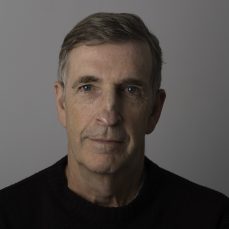News
Message from Dave Archard, new Council Chair
I was delighted to take up the position of Chair of the Council earlier this summer. My connection with the Council goes back a long way. I was Deputy Chair of the working group that produced the report on Critical care decisions in fetal and neonatal medicine in 2006. Since then, I have actively followed the Council’s work and have seen its reputation and influence grow nationally and internationally.

At my first meeting in June we discussed our forthcoming report on genome editing in human reproduction, the successful launch of the cosmetic procedures report, as well as follow-up on that and our report on non-invasive prenatal testing. We also discussed options for future work, which included research in global health emergencies and research on the biological processes of ageing. We will be considering over the coming weeks how we might wish to take these forward.
We will be publishing our 2018–22 Strategic Plan in the new year. We will continue our transition to an organisation that is more responsive, with an increased range of outputs, and greater engagement in policy and public affairs. We will also enhance our horizon-scanning capability, develop new partnerships, and extend our international reach.In responsive mode, the Council published a discussion document on the time limits for culture of human embryos over the summer, with an excellent introduction by former Chair Jonathan Montgomery. My own contribution offered a reflection on the approach to the 14-day limit made by Baroness Warnock, whose role in the creation of the Human Fertilization and Embryology Authority I regard as one of the great achievements of her distinguished career as a public philosopher.
We have also recently published the 2016 Annual Report, and, whilst I cannot take credit for the work of the last year, I have been nothing but impressed by the quality and breadth of the Council’s outputs and the work of the Executive. Particular thanks must go to Jonathan Montgomery, whose five-year term as Chair left us with a fantastic legacy for which we are extremely grateful.
I took the Eurostar to Paris straight after the June Council meeting with Hugh Whittall and colleagues to join a tri-lateral meeting with the French and German National Ethics Committee. Hugh and I will be attending the 20th anniversary meeting of the Convention on Human Rights and Biomedicine in October at Strasbourg, as well as the Global Summit of National Bioethics Committees in Tallinn, Estonia, in early November. Looking further ahead I plan visits to both Hong Kong and Australia in early 2018. In Hong Kong I will hold talks with the Centre for Bioethics at the Chinese University to explore possible links and cooperation with them and others in Chinese institutions. This in my view is crucial given that China is at the forefront of developments in biomedical science research.
The vital role we play in providing independent advice to policy-makers and in stimulating debate in the public interest will, I believe, become even more important in the future in an increasingly complex and fast-moving context of biomedical scientific progress. And the international dimension of this is increasingly significant. I look forward to leading the Council in the development and delivery of the Council’s new Strategic Plan over the next five years and would welcome your feedback on our work and priorities.